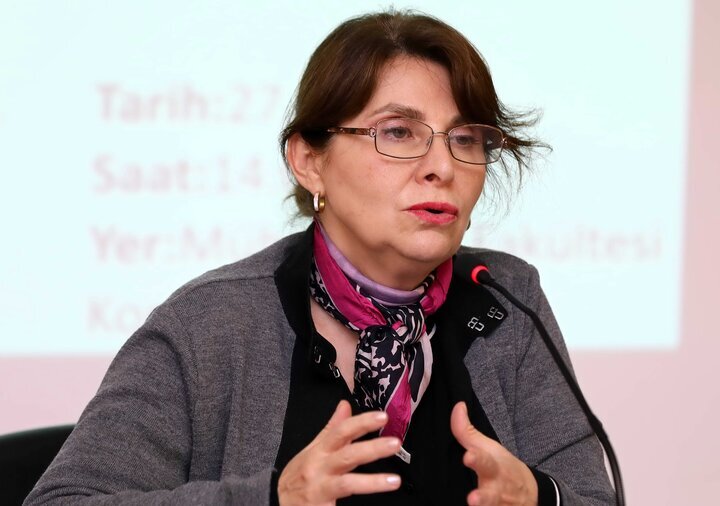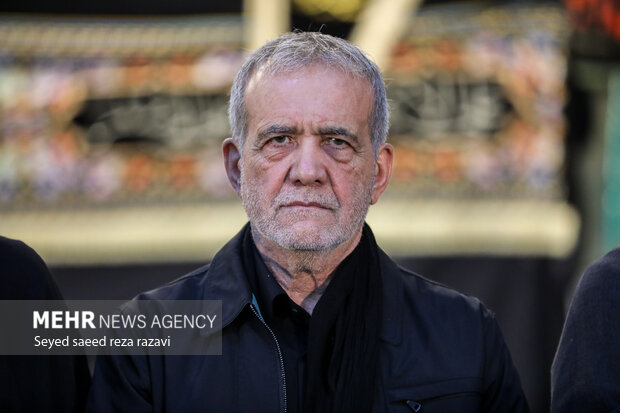Hezbollah's strategic use of its concealed air defense systems intends to effectively counter Israeli air dominance, forcing the occupation state to scramble to adapt to 'unknowns' that threaten its air force.

The Cradle's Military Correspondent
Air defense has been a core strength of Israel’s military strategy for years, able to mitigate any perceived threats from its qualitatively weaker adversaries. But that edge has deteriorated as members of West Asia’s Axis of Resistance have rapidly developed military projectiles that can reach all parts of occupied Palestine, destroy its “eyes and ears,” and even cripple its air defenses.
In Tel Aviv, all eyes are on Hezbollah, Lebanon’s resistance organization, which has kept its air defense capabilities shrouded in secrecy so it can maintain the element of surprise in a full-on war scenario.
Since the 1990s, Hezbollah has utilized Soviet-designated shoulder-fired SAM-7 or STRELA-2 MANPADS to protect against Israeli air encroachment into Lebanon. These missiles, which primarily targeted Israeli helicopters, also made sporadic attempts against warplanes. But, their uncooled thermal sensors and susceptibility to sun interference limited their effectiveness.
Israeli newspaper Haaretz notes that while these anti-aircraft arms are unlikely to hit targets like the Hermes 900 drone (which operates at medium or high altitudes), last November, an Iranian 358 SAM successfully targeted the Hermes 450.
In 2006, Hezbollah’s air defenses included more advanced shoulder-fired systems and 23mm machine guns. During the 33-day July war that year, an Israeli CH53 helicopter was downed by a Chinese-made QW-1 Vanguard missile, killing four Israeli officers and damaging three other helicopters.
The Vanguard represents a newer generation of rockets equipped with cooled sensors, which allow for better heat detection and target differentiation. Newer missiles, such as Iran’s Igla or Mithaq 2 and 3, reportedly in Hezbollah’s arsenal, now feature multiple sensors. This technology improves their ability to distinguish between aircraft and the thermal traps or balloons deployed to mislead incoming missiles.
Air engagement in Lebanon’s south
Last month, Hezbollah’s armed wing, the Islamic Resistance, announced several attempts to shoot down Israeli aircraft, with several successful hits on Israeli drones, likely using 358 missiles. Identifying the specific missile used is challenging, however, as Hezbollah’s military media typically edits out the missile explosion with the drone.
In the case of targeted warplanes in the south, several factors suggest that shoulder-fired guided missiles (MANPADS) were used.
First, the rockets’ speed in available footage was low compared to larger rockets, which are several times faster than the speed of sound. The average engagement altitude of these systems is only four kilometers, which makes it difficult to maintain high speeds at high altitudes due to the limited size of the rocket propulsion and available fuel.
Shortly after these missile launches, Israeli planes were seen rising and breaking the sound barrier. This breach of the sound wall indicates acceleration and transition from subsonic to supersonic speeds, meaning the pilots were attempting to evade the missile by exiting its coverage umbrella, typically above four kilometers.
This maneuver coincides with Israel’s deployment of various thermal balloons, which act as decoys to deceive the missile and hide the aircraft’s heat signature. This tactic, however, is less effective against newer missiles like the Russian Igla and Verba, Iran’s Charter-3, or the Chinese QW-18, which can distinguish between decoys and actual aircraft.
Currently, there is no confirmed Hezbollah use of medium-range missiles, which were rumored in western media to be in the Lebanese resistance’s possession, such as the M-1 or Pantsir systems.
Israeli provocations and Hezbollah’s air defense tactics
As engagements with the Lebanese resistance intensify – most recently with Israeli accusations that Hezbollah targeted non-combatants in the occupied Syrian Golan Heights on Saturday – it appears that the occupation forces are trying hard to provoke Hezbollah into activating its air defenses. This strategy, while risky, can yield significant intelligence benefits for Tel Aviv if successful.
Typically, two or more Israeli planes fly at low altitudes to entice Hezbollah’s air defenses to engage. The objective is not to provoke the use of shoulder-borne systems but to draw out the more sophisticated systems capable of engaging targets at altitudes of up to 10 kilometers and even 20 kilometers. Low-altitude engagement limits the aircraft’s ability to escape the engagement zone.
During these flights, other Israeli fighter jets may hover nearby, equipped with guided munitions or anti-radar ammunition, waiting for Hezbollah to activate their radars. If these radars are activated, the munitions can lock onto the radar signals and destroy the air defense systems, rendering them ineffective without their radar guidance.
Additionally, electronic warfare aircraft from the Nahshon Squadron or Heron TP Eitan drones may be used to pinpoint the location of Lebanese missile launches, preparing to target and disable the air defense systems.
Low-flying aircraft rely on sudden altitude changes to evade radar detection, hiding in the terrain, or deploying defensive measures such as decoys and jamming systems to mislead and escape missiles.
Hezbollah is currently using shoulder-fired missiles to target occupation aircraft, aiming to push them out of Lebanese airspace. These smaller missiles are chosen for several reasons related to operational secrecy and strategic caution.
The resistance aims to conceal its advanced air defense tactics and systems, preferring to keep its comprehensive strategies, including geographical deployments and ambush plans for wartime, hidden. This approach means they only use systems and tactics that are already known to the Israelis, even at the cost of accepting some losses.
Between secrecy and engagement
Engaging Israeli aircraft with advanced systems before a full-scale conflict would expose Hezbollah’s air defense capabilities and strategies prematurely. This cautious approach ensures that Hezbollah retains an element of surprise in critical situations.
Moreover, any plan to effectively counter Israeli air operations must include disrupting their broader operational support network, such as airbases, command centers, radars, and communication hubs – which Hezbollah has been doing since the launch of Palestine’s Operation Al-Aqsa Flood last year.
Given the Israeli air force’s advanced capabilities, backed by continuous technological advancements, western investment, and extensive operational experience, Hezbollah faces significant challenges. Thus, its strategy is driven more by operational needs and imperatives rather than the lack of either capability or courage to engage Israeli warplanes directly.
In one of the Israeli strikes on the southern Lebanese Zahrani area in May, a citizen accidentally filmed an unexploded missile, later identified as an Iranian-made Sayyad-2C missile. This footage, which circulated in Israeli and western media, inadvertently confirmed that Hezbollah possesses medium-range air defense missiles.
Preparing for potential full-scale war
The Sayyad-2C has a range of about 75 kilometers and can reach altitudes of 30 kilometers, capable of covering all operational altitudes of Israeli warplanes. Traveling at high speeds of around Mach 4.5, it can effectively chase and shoot down Israeli aircraft.
The missile features various guidance systems, including semi-active ground guidance that requires an engagement radar and active tracking with its own radar. This dual system allows the missile to engage targets without emitting detectable radar waves, providing strategic advantages.
The presence of the Sayyad-2C missile in southern Lebanon indicates Hezbollah’s significant air defense capabilities. However, the decision to deploy these advanced systems on a large scale will likely depend on actions undertaken by Tel Aviv.
Given the complexity and advanced nature of Israeli air capabilities, Hezbollah is unlikely to fully activate its most advanced air defense systems except in the event of a full-scale war. Engaging in limited skirmishes without jeopardizing long-term assets is prudent, particularly when faced with an adversary as well-equipped as Israel.
In essence, Hezbollah’s air defense strategy is about maintaining a delicate balance. It involves protecting its assets, minimizing losses, and being prepared to escalate its defensive measures accordingly.
A trademark strategy among the region’s Axis of Resistance, Hezbollah’s calculated restraint and readiness to leverage its advanced capabilities will continue to shape its operations in airspace confrontations.


.jfif)

























